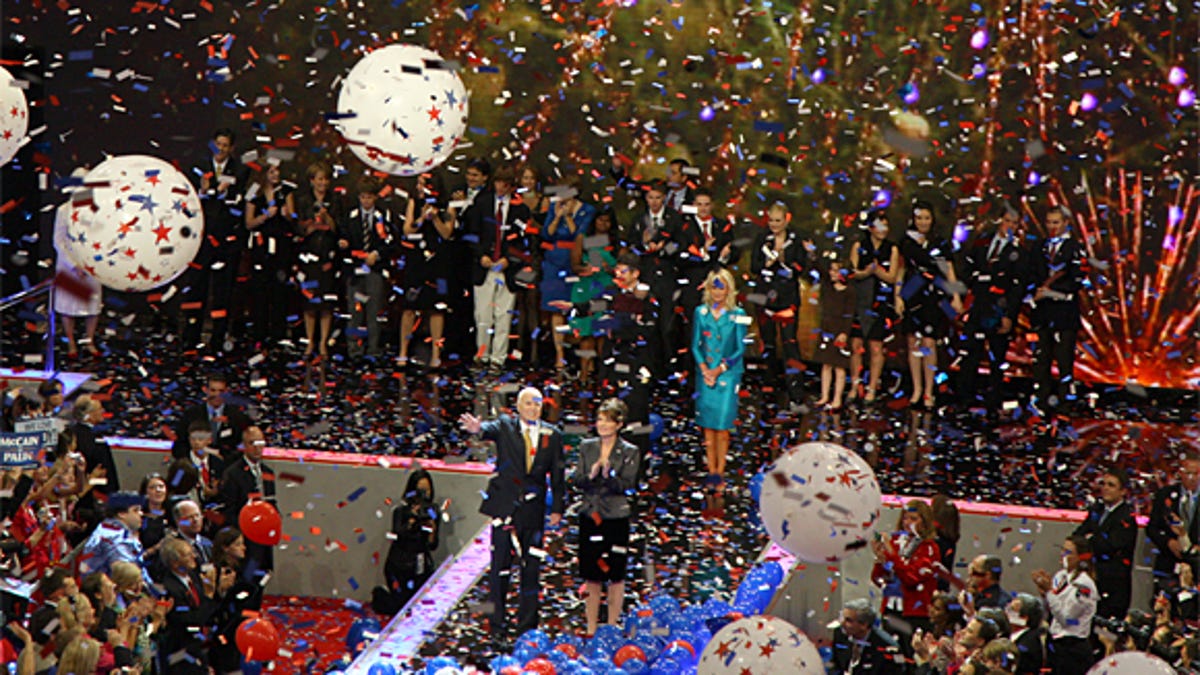John McCain helped to create the BlackBerry? Really?
McCain campaign aide's boast that his boss' policies helped to create the BlackBerry are prompting comparisons to Al Gore's claim that, while in Congress, he "took the initiative in creating the Internet."

John McCain doesn't use e-mail. So it was downright odd to see one of his aides hold up a BlackBerry on Tuesday and claim that the Arizona senator somehow deserves credit for its existence.
"He did this," economic policy adviser Douglas Holtz-Eakin told reporters, referring to a BlackBerry, according to a report on Politico.com. "Telecommunications of the United States is a premier innovation in the past 15 years, comes right through the Commerce Committee. So you're looking at the miracle John McCain helped create and that's what he did."
This may join the ranks of the-Internet-is-too-hard-to-use statements personally made by the Republican candidate, including this remarkable admission from July: "I am learning to get online myself, and I will have that down fairly soon, getting on myself. I don't expect to be a great communicator, I don't expect to set up my own blog, but I am becoming computer literate to the point where I can get the information that I need--including going to my daughter's blog first, before anything else."
And then there was the rather sad claim, captured on video, from a campaign representative that "John McCain is aware of the Internet." Plus McCain's statement early this year that: "I am an illiterate that has to rely on my wife" for the Internet, presumably meaning such taxing matters as visiting a Web site.
Holtz-Eakin's unfortunate improvisation is likely to add to the narrative of a presidential candidate out of touch with technology, just as Al Gore's improvident boast about "creating" the Internet reinforced suspicions that the vice president liked to exaggerate his accomplishments.
I wrote a Wired article in 1999 poking fun at Gore's claim (which I'm sure endeared me to a generation of Democrats). According to a transcript, he boasted to CNN that: "During my service in the United States Congress, I took the initiative in creating the Internet."
Of course, Republicans seized on the quotation by misquoting Gore; Trent Lott sent out a press release claiming to have invented the paper clip, and Dan Quayle joked that he "invented spell-check." And Democrats, meanwhile, offered narrowly correct rebuttals that Gore never claimed to have "invented" the Internet--while largely glossing over a worldview that implies no technological development can be legitimate until Congress enacts the appropriate legislation.
The McCain campaign fell into that trap this week. If Gore could take credit for "creating" the Internet, then why can't ex-Senate Commerce Committee Chairman McCain claim credit for "creating" the BlackBerry, never mind that it was developed by a Canadian company? Or Wi-Fi, which the McCain campaign also seemed to do this week? Or, for that matter, every computer and technological gadget used today? McCain, the father of the iPhone, anyone?
To be fair to both politicians, neither made a claim of particular technical expertise. Gore was not saying he was involved in the early days of the ARPANET (he was a law student at Vanderbilt at the time), and McCain's aide was not saying his boss was in Waterloo, Ontario working for Research in Motion. They're both clumsily trying to point to legislation that--they believe--has helped to create the environment for innovation.
Reason magazine's Virginia Postrel got it right when noting in 1999 that: "Government is so pervasive that almost every development, positive or negative, can be tied in some way to government--to subsidies, to tax-code distortions, to regulations. Politicians can claim credit for innovations they did little to create; people who want an even more activist government can point to those same inventions as evidence that government is just dandy; and pork-seeking industries can claim that subsidies and tax credits will make America rich."
This pervasiveness is problematic in two ways. First, it steals credit from the engineers and programmers (and, yes, executives) whose hard work is directly responsible for giving us useful gadgets like the BlackBerry or iPhone. I was in the San Francisco auditorium last year when Steve Jobs introduced the iPhone and asked that every Apple employee involved in the project stand up to be recognized; to tremendous applause, hundreds did.
Second, if politicians say their policies caused advances made by the private sector, they should be willing to take the blame for missed economic opportunities also caused by their policies. McCain has a mixed record on taxes, for instance; he should share the blame for gadgets we don't have today because resources were diverted from productive Silicon Valley firms to far less productive uses inside the federal government. (This is what onetime New York Times writer Henry Hazlitt called "the fallacy of overlooking secondary consequences.")
Back to Gore and McCain for a moment. Their claim, in essence, is that through their hard work they have personally contributed to the general environmental conditions that let the Internet and BlackBerry come into existence.
Even if those claims are true, though, they're tissue-thin. By lending money, banks arguably create the general environmental conditions that let technology companies innovate. For better or for worse, lawyers also help to create those general environmental conditions. Presumably pizza delivery places, the makers of Jolt cola, and the late-night cleaning staff at tech firms should share the credit while we're at it.
The last would be closer to the mark. But it sure doesn't sound as good as "I took the initiative in creating the Internet" or "the miracle John McCain helped create and that's what he did."

